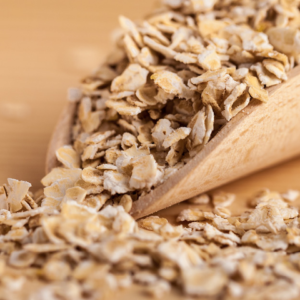Over 100 million people in the US suffer from digestive problems so it’s likely that you’ve experienced associated symptoms such as acid reflux, heartburn, gas, and bloating, at some point. These issues are so common that they are often dismissed as “normal” complaints, but such symptoms are definitely not normal. They indicate a serious SOS from your gut that really shouldn’t be ignored if you want to improve your gut health.
Poor gut health can cause a range of issues that go far beyond your digestive system. How well your gut functions is directly associated with how well your body functions as a whole. Your gut health determines how efficiently your body can absorb the nutrients it needs and keep out the toxins that can cause illness and disease.
An unhealthy gut can contribute to many diseases such as diabetes, arthritis, autoimmune disorders, and even depression. Depression may sound like a bit of an outlier here, but if you’ve ever heard the phrase “your gut is your second brain” then it makes sense that an ill-functioning gut can have a direct impact on your mood. Your body’s “happy hormone” — serotonin — is produced in your digestive tract, and if your digestive system isn’t working properly then your serotonin levels will destabilize and your mood will suffer as a result.
By following these 7 steps, you can start to improve your gut health and overall well-being right now.
 1. Cut Down on Processed Foods and Increase your Fiber Intake to Boost Gut Health
1. Cut Down on Processed Foods and Increase your Fiber Intake to Boost Gut Health
Unfortunately, our 21st-century diet of high-sugar, low-fiber, mostly-processed food, promotes the growth of bacteria (the bad kind) and yeast in the gut. So whilst it’s unlikely that you’re going to cut out processed food completely, and nor do you have to, you should try to reduce your intake.
You can do this by adding more whole and fiber-rich foods to your diet. Fiber-rich foods perform an essential role as prebiotics, promoting the growth of good bacteria in your gut that’s essential for a healthy digestive system.
2. Manage Stress Levels to Improve Gut Health
Chronic stress can have a massive impact on your digestive system due to the associated “fight or flight” response which decreases the blood flow to your digestive tract and reduces the secretion of digestive enzymes. If you want to take care of your physical well-being, then you have to make sure your mental wellness is under control too. Some excellent methods of stress reduction include mindfulness, meditation, and daily exercise
3. Target and Eliminate Possible Food Allergies for Better Gut Health
If you’re questioning whether you’re sensitive to a particular food, it’s worth trying an elimination diet to find out for sure. Try removing dairy, gluten, yeast, soy, corn, and eggs, from your diet for one or two weeks to see how your gut reacts and if your symptoms decrease (or disappear). This is a great way to get to the root cause of the issue if your symptoms are being triggered by a specific food.
 4. Increase Fruit and Vegetable Intake
4. Increase Fruit and Vegetable Intake
Once you’ve done the elimination test and know what fruit and vegetables you can tolerate, you should increase your daily intake. This can help with promoting a good balance of digestive enzymes in your gut. Most people who think they eat enough fruit and vegetables still don’t (unless you’re a vegetarian!).
5. Start Chewing
If you’re one of those culprits who doesn’t chew their food properly then it’s time to start. This is a super easy adjustment to make to your eating habits that can have a really positive impact on your digestive health. The more chewing you do, the less work your gut has to do. Aim for at least 20 “chews” for every mouthful of food. It sounds like a lot if you’re not used to it, but you’ll actually find it relaxing after a while and it’ll quickly become second nature.
 6. Increase Your Digestive Enzymes
6. Increase Your Digestive Enzymes
Adequate levels of digestive enzymes are essential for optimal gut health. Without them, your gut can’t break down food properly and convert it into the raw materials your body and brain need to thrive. Digestive enzymes also help to reduce inflammation and regulate your immune responses, so they’re pretty important! By supplementing your diet with high-quality digestive enzymes you can optimize your nutrition and improve your digestive health.
7. Stop Eating Before You’re Completely “Full”
There’s a Japanese saying, “hare hachi bu” that means “eat until you are only 80% full” and this is a great way to take control of your digestive health. Overeating can actually cause issues such as acid reflux, heartburn, gas, and bloating by increasing the pressure in your abdomen. By sticking to the “80% full” rule, you can make sure this doesn’t happn

